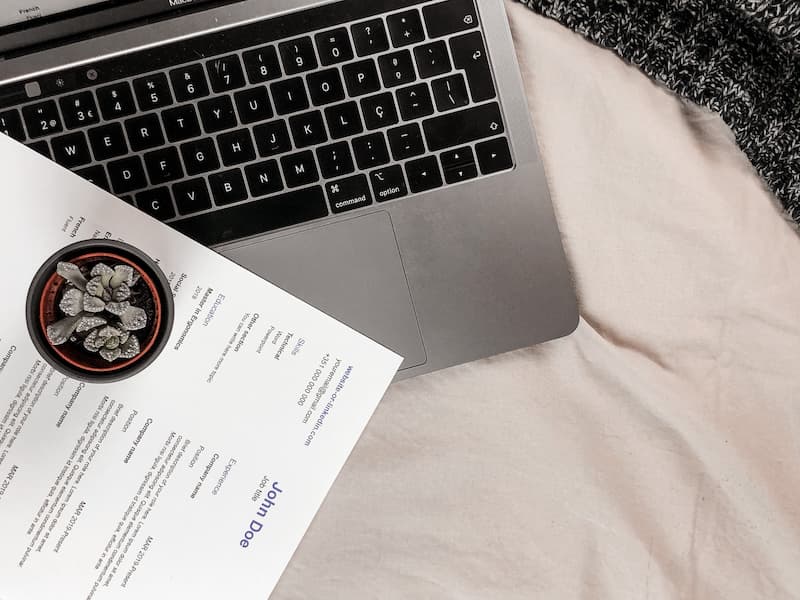5 Ways to Optimise Your Resume for a Remote Work Role
After the COVID-19 pandemic led to widespread remote work, many companies have decided to allow employees to work from home indefinitely. This has resulted in countless people who are now looking for remote work roles. In fact, by the end of 2023, 25% of workers in North America will be working at least some of the time remotely.
From graphic designers to customer service representatives, there are thousands of positions that can be done remotely. And with more competition than ever, it’s important to ensure your resume is optimized for a remote work role.
How to optimize your resume for a remote work role
Your remote job hunt will greatly benefit from specific changes you make to your resume. If you’re dreading the time investment, think of it this way: the hours you put into building your resume is an investment in your future and your overall job satisfaction.
A professional resume is the best chance to introduce yourself, highlight your abilities and experience, and get you one step closer to landing an interview and getting the job of your dreams.
And remember: your goal is to get an interview. Resumes should be interesting enough to make the recruiters want to learn more about you, so they can invite you in and you can showcase your personality and potential from there.
1. Stick to a single page
One of the most common questions asked by job applicants is, “How long should my resume be?” In almost all cases, the answer is “one page.”
A one-page resume is far simpler for recruiters to read and digest. It also shows that you can be concise and direct when it comes to presenting your qualifications.
If you have more than ten years of work experience or are applying for a senior-level position, you can use a two-page resume. But that’s where it gets tricky; you don’t want your resume to be too long, but you also don’t want to exclude the important details.
Make sure to add these critical details and leave the rest when you get that interview:
- Relevant work experience (10 years or less)
- Skills and qualifications
- Education
- Achievements and awards
- Personal details
Here’s a great example of how to include this on your resume:
- “10 years of customer service experience, with 5 of those years in a management role.”
- “Skills: Teamwork, conflict resolution, customer satisfaction”
- “Relevant Qualifications: Bachelor’s degree in Business Administration”
- “Achievements: Employee of the Month 3 times, Top Sales Performer for 2 quarters”
2. Write at least two or three versions
Most of us assume that it’s perfectly fine to send the exact same resume out for every job since it’s common practice. But doing this could penalize you if your resume isn’t tailored exactly to the job requirements. So what if you took the time to customize each resume for the specific role you’re applying for?
This means tailoring the language and focus of your resume to match the job description. For example, if a job posting emphasizes teamwork, be sure to include examples of times when you’ve excelled in a team environment on your resume.
If you’re unsure of how to do this in a professional manner, use a trusted resume builder to help you build a tailored resume in minutes. From perfectly written bullet points created by job description analysis, automatic resume formatting, and modern templates, you can save valuable time by going down this path to focus more on getting the details just right.
Creating at least 2 or 3 versions of your resume will take a little time and effort, but it’s worth it if it means landing the job you want.
3. Read the job description carefully
This is a trade secret that not many job seekers are aware of: you must read the job description carefully and identify the specific skills required for the role. Why? Because you’ll need to highlight these particular skills on your resume. Your potential employers are specifically looking for candidates who understand the role on offer.
For example, if the job requires excellent customer service skills, be sure to mention in your resume that you’ve provided superb customer service in the past, and how you’ve done so with concrete examples. If the job requires experience with a specific software program, mention where you’ve used that software program in the past and what you’ve accomplished with it.
By carefully reading the job description and tailoring your resume to match, you’re increasing your chances of getting an interview. Let’s take a look at how to do this:
- Copy the job description into a document. Use it as a guide when updating your resume and edit it according to the specific remote job you’re applying for.
- Highlight the critical skills required. This includes keywords and phrases repeated throughout the job posting and specific skills mentioned. Adding these to your resume will be like adding a secret sauce. Because many companies use ATS (applicant tracking systems) to scan resumes for keyword matches with the job description, adding the right skills to yours will ensure your application gets to a hiring manager’s desk.
- Match the tone. Every job has a specific tone. Some are more formal, while others are more relaxed. You want the tone of your resume to match that of the job posting. By paying close attention, you’ll notice that some ads are written in a certain way to target a specific type of person.
For example, if the job is for a startup company, they may have written the ad in a more relaxed and fun way to target people who are creative and out-of-the-box thinkers. If the job is more formal, such as a law firm, they’ll want someone who can be professional and follow instructions well.
Reading the job posting carefully will give you a better idea of what the company is looking for and what their work culture could be like. Additionally, this can come in handy during the interview when they ask you questions about your experience and why you’re a good fit for the job.
4. Write your resume to tell your story
We understand that not everyone is a born writer; some people find it harder than others to put their thoughts into words. But this is one area where you need to step up your game as much as possible.
Your resume is essentially your story and it needs to be well written for the hiring manager to want to hear more. A poorly written resume will be off-putting and make you look unprofessional and unqualified.
Here are a few tips on how you can tell your story in a way that will engage the reader and make them want to learn. You only have a page or two to do this, so make it count:
- Start with a hook. The first few sentences of your resume are the most important. This is where you need to grab the hiring manager’s attention and tell them what makes you unique yet perfectly qualified. Think of it as your elevator pitch – you only have a few seconds to make an impression, so make it good!
- Use strong action verbs. Words are powerful and you want to use them to your advantage. Choose words that are strong and convey confidence. For example, instead of saying, “I helped increase sales”, say, “I increased sales by XX%”.
- Be specific. Be as detailed as possible when writing your resume. Use numbers and data to back up your claims. This will make you sound more credible and trustworthy and shows you can deliver results.
- Use the right words. Using positive words like “achieved”, “succeeded”, and “created” will make you sound like a go-getter who knows how to get things done.
- Be concise. Avoid writing a long-winded resume that goes on and on. Hiring managers are short on time, so be clear and to the point.
5. Format your resume for easy readability
When a hiring manager looks at your resume, they should be able to find the information they’re looking for easily. If your resume is difficult to read or navigate, they’ll likely move on to the next one.
Here are a few tips on how you can format your resume for easy readability:
- Use clear headings and subheadings. This will help break up the text and make it easier to scan.
- Use bullet points. Bullet points are easier to read than paragraphs of text. They also make it easier to find the information you’re looking for.
- Use white space. White space makes your resume more visually appealing and easy on the eyes. It will also help break up the text and resume sections to make it easier to read.
- Keep it simple. Stick to a simple format that is easy to read. You don’t need to get fancy with your resume design unless you’re applying for a role in a creative industry.
- Use an easy-to-read font. When it comes to fonts, less is more. Stick to a simple font that’s easily recognizable and professional, like Arial or Times New Roman.
If you’re unsure of where to start, make sure you understand which of the resume formats will best highlight your profile. Depending on how much work experience you have or if you’re a career changer, not every resume format will suit you so choose wisely.
Start Optimizing Your Resume and Get Your Dream Job Today!
Remember that hiring managers will only take you for an interview if your resume is up to par. Follow our tips above to make sure your resume is optimized for a remote work role.
Stay up-to-date with the latest remote work trends to get ahead of your competition and choose reputable job boards like GrabJobs for the latest remote job postings, tips, and advice.
This article was provided by ResumeGenius
Photo by João Ferrão on Unsplash









